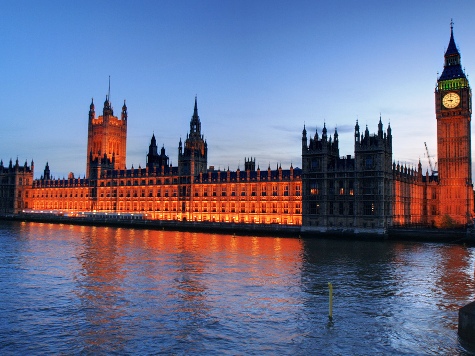If Scotland votes for independence it could put the 2015 General Election in doubt and potentially bring down the next government, according to a leading lawyer.
Professor Alan Boyle, a specialist in international law at Edinburgh University who wrote the government’s legal advice on Scottish independence, warned that the next General Election could be thrown into chaos as Scottish MPs would likely only be able to sit for half the parliament.
If the next government is dependent on Scottish MPs for its majority, it could potentially fall when Scotland becomes independent.
The effect would be especially pronounced on the Labour Party, which has a large number of MPs in Scotland and was dependent on those MPs to maintain its majority from 2005 to 2010. It would also lose several senior party figures, including former Prime Minister Gordon Brown and former Chancellor Alistair Darling.
The Telegraph reports that Professor Boyle has outlined two options for the election if Scotland votes for independence: pass emergency legislation to stop Scottish constituencies electing MPs or eject Scottish MPs on the day the country becomes independent.
Either proposal could cause a constitutional crisis. If Scotland is not allowed to participate in the next election, manifestos would have to be rewritten and campaigns changed just seven months before the election. Given the large amount of Labour support in Scotland, it could also radically alter the outcome of the election.
If Scottish MPs are allowed to stay until independence, they could end up propping up the next government if it does not have a majority of English and Welsh MPs. Upon independence, that government would lose its majority and potentially fall to a vote of no confidence.
They would also have to voluntarily absent themselves from votes in negotiations over the independence settlement, or else they could be accused of interfering in Westminster in order to get the best possible deal for Scotland.
The Telegraph quotes Professor Boyle as saying: “They could surely not sit in judgement on whether the terms of any agreement are acceptable to the UK, a state from whose parliament they would thereafter be excluded.
“At best Scottish MPs might try to persuade Parliament to grant terms more favourable to Scotland than those negotiated on their behalf by the Scottish government.
“At worst they might be accused of undermining a deal negotiated by that government. Certainly it would be strange for the government of the United Kingdom to be held accountable to MPs from a soon-to-be-independent Scotland.”

COMMENTS
Please let us know if you're having issues with commenting.